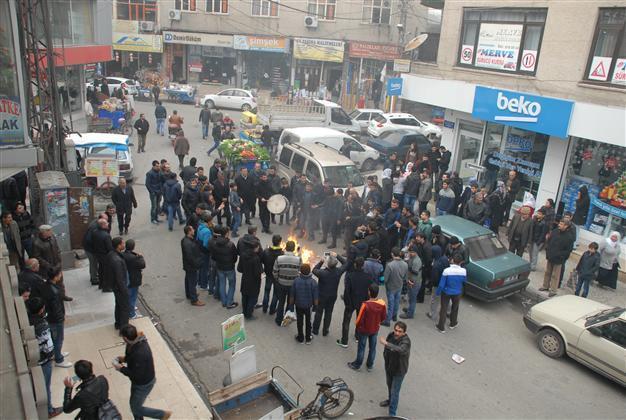Mayors, power grid firm at odds in southeastern Turkey
Faruk Balıkçı DİYARBAKIR

AA Photo
A row over electricity in southeastern Turkey is continuing to grow, with grid firm DEDAŞ cutting power to water utilities, prompting municipalities to close DEDAŞ facilities in return.DEDAŞ stated that the Diyarbakır Metropolitan Municipality was 90 million Turkish Liras in debt, leading it to cut power to water refining plants.
The municipality immediately dug ditches around the DEDAŞ headquarters to prevent entrance on the grounds that it was conducting sewage work.
The move by the grid firm has triggered risks of an epidemic for 1.6 million people, said co-Mayor Fırat Anlı, adding that an outbreak could create damage that the company cannot face.
Diyarbakır “is under oppression” by DEDAŞ, the co-mayor told Hürriyet.
“This can even be seen from outer space. They are cutting the water regularly every day. This is the point where words end,” he said.
The DEDAŞ also cut power to areas linking the refined water to the Tigris River, Anlı said. “They started to cut the power of contractors working for DİSKİ [the municipality’s water company] in a mafia or gang-like way,” he said.
DİSKİ has fulfilled all its dues since DEDAŞ took over a privatized grid, according to the mayor.
Co-Mayor Gültan Kışanak also said DEDAŞ’s actions were problematic and that the company was not trying to solve the dispute judicially because it knew it was not in the right.
“This is not a city that will be bullied by bandits,” Kışanak said, calling on the government to take action.
“No one has the right to leave a city of 1.5 million without water and let waste water reach nature without being refined,” she said.
Diyarbakır has been receiving unrefined tap water for days.
Officials in the province’s Silvan district sealed DEDAŞ facilities on Jan. 21.
On the same day, the company said the power cut was for “vital trade reasons,” insisting that the cuts were inevitable because of unpaid bills.
The nearby province of Şanlıurfa is also facing similar problems, experiencing cuts on Jan. 21.
















